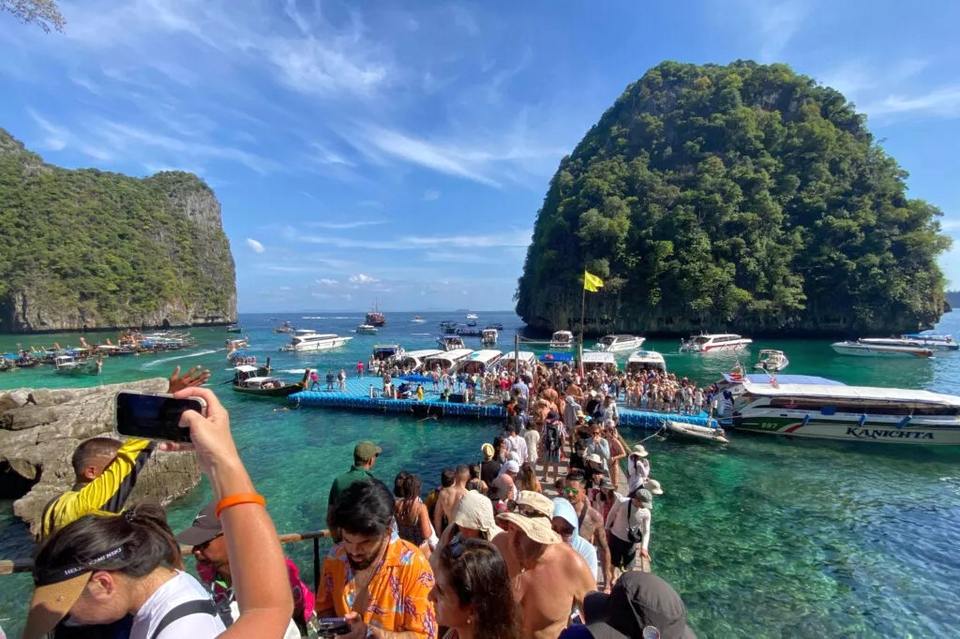
The future of the proposed reconciliation committee aimed at resolving the political conflict still hangs in the balance as the anti-government movement has refused to take part while the position of opposition politicians remains unclear.
A protest group under the banner of the People's Movement announced on Wednesday it would not join parliament's proposed panel, calling it a ruse to keep Prime Minister Prayut Chan-o-cha in power.
It reiterated the demands for the prime minister's resignation, a charter rewrite and monarchy reform.
King Prajadhipok's Institute (KPI), which was commissioned by parliament to provide suggestions on who should sit on the committee, has come up with two models for the panel.
The first would comprise representatives from seven groups while the second would see the panel made up of "neutral" representatives proposed by those involved.
Stithorn Thananithichot, director of the Office of Innovation for Democracy at the KPI, told the Bangkok Post the make-up of the committee under the first model would likely lean toward the government, particularly with the anti-government group having opted out of the process.
Also, it is unclear who would represent the student-led protesters, he said.
As for the second model, Mr Stithorn said the advantage is that parliament would be the forum for solving the conflict.
However, the outcome of talks among the "neutral'' representatives would be futile if they bore little relation to the war of ideologies being waged across the nation by those on either side of the divide, he said.
He pointed out that it is unlikely that the anti-government group would send representatives to sit on the committee if they were not given assurances the issue of the monarchy could be tabled too.
However, he said he was convinced the reconciliation process would go ahead and it would be down to the speaker, Chuan Leekpai, to make it relevant to the wider context.
Woothisarn Tanchai, secretary-general of the KPI, said the institute has drawn on its experience in working on reconciliation proposals in the wake of the political unrest in 2009 and 2010, and used this information to apply to studying the current conflict.
He also said that the KPI is preparing to talk to all stakeholders and gather their opinions on what they actually want.
Former premier Abhisit Vejjajiva, ex-Democrat Party leader, told the Bangkok Post that Parliament President Chuan Leekpai had sought his advice about a way forward.
He said that the two demands from the protest group -- charter amendments and monarchy reform -- should be separated.
If the protesters want reform, they must stop being hostile to the monarchy first, he said, adding the protesters must accept that the institution is respected by the majority of people in the country.
These two very distinct issues need different approaches and thus should be considered separately, Mr Abhisit said.
He also said that the protesters' demand for Gen Prayut's resignation is not a solution because whoever follows him would still be chosen under the rules of the current contested constitution.
Therefore, the first step should be to amend Section 272 of the charter, which allows the coup-appointed senators to join MPs in voting for a prime minister, Mr Abhisit said.
Although Gen Prayut has said he will not stand in the way of this, Mr Abhisit said, the prime minister must be stronger in urging members of the coalition and Senate to support amending the constitution.
Mr Abhisit said that redrafting Section 272 itself would not require a referendum, although revising Section 256 to set up a charter drafting body would, and this could take two years. Mr Abhisit also pointed out that senators have disagreed with amending Section 256, arguing this would give the charter drafting body "a blank cheque'' to write a new charter.
Chief opposition whip and Pheu Thai MP Sutin Klungsang told the Bangkok Post that if a reconciliation panel is set up, the scope of its power should be specified, such as whether it could recommend the prime minister resign to pave the way for charter amendments. He also said the second model would, on the surface, appear to be a more practical solution as it would be made up of people acceptable to all sides, while the first-model could easily be dismissed as partisan by the pro-democracy faction.


Inga kommentarer:
Skicka en kommentar